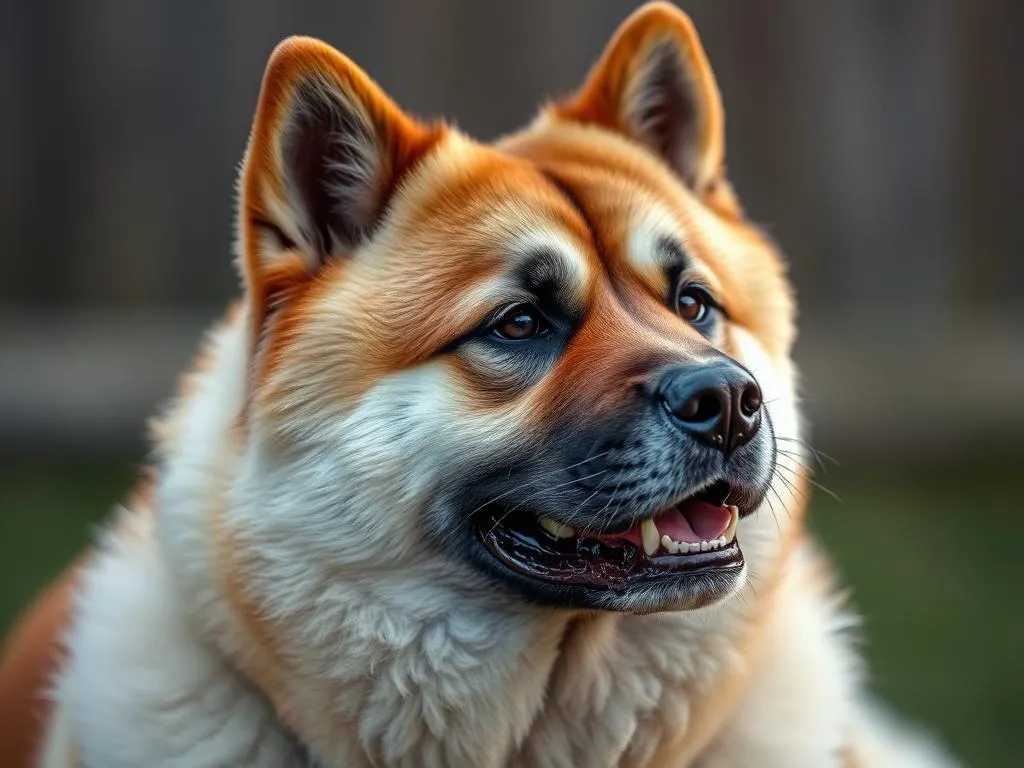
The Akita breed, known for its majestic stature and noble temperament, has captured the hearts of dog lovers worldwide. Originating from Japan, these dogs are not just companions; they carry a legacy that intertwines with loyalty, strength, and protection. With an increasing number of people seeking reliable guard dogs for their homes and families, many wonder: is an Akita a good guard dog?
In this comprehensive exploration, we’ll dive deep into the characteristics of the Akita, its historical significance, and how it measures up as a potential guard dog.
Understanding the Akita Breed
History of the Akita
The Akita’s journey begins in Japan, where it was initially bred for hunting and guarding. This breed, recognized for its powerful build, has roots that date back to the early 17th century. Originally known as the Akita Inu, it played a vital role in Japanese culture, symbolizing loyalty and bravery. The lineage of the Akita evolved from fighting dogs to cherished companions, reflecting the changing human-dog relationship.
During its history, the Akita has been revered as a protector of family and property. The famous story of Hachiko, an Akita who waited for his deceased owner daily, showcases the breed’s loyalty and emotional depth. This rich heritage contributes to the Akita’s reputation as a potential guard dog.
Physical Characteristics
The Akita is a large and powerful breed, typically weighing between 70 to 130 pounds. Males are generally larger than females, standing at about 26 to 28 inches tall, while females range from 24 to 26 inches. Their robust build is complemented by a thick double coat that can come in various colors, including white, brindle, and various shades of red.
Distinctive features of the Akita include:
– Erect ears that denote alertness
– A curled tail that rests over the back, showcasing the breed’s elegance
– A broad head with a powerful jaw, enhancing its protective capabilities
Temperament and Personality
The Akita is known for its loyalty and independence, traits that make it an excellent family companion. However, its temperament can vary; they are typically reserved with strangers but loving with their families.
Akitas are intelligent and can be independent thinkers, which may pose challenges in training. Proper socialization from a young age is crucial in ensuring they develop into well-rounded dogs. Their natural instincts to protect their family and territory can be harnessed effectively through consistent training.
The Role of a Guard Dog
Definition of a Guard Dog
A guard dog serves a crucial role in protecting its home and family. The ideal guard dog possesses characteristics such as courage, loyalty, and acute senses. Unlike watchdogs, which alert their owners to potential intrusions, guard dogs are trained to confront threats directly.
Traits of a Good Guard Dog
An effective guard dog should exhibit the following traits:
– Acute senses and alertness: The ability to detect unusual sounds or sights.
– Protective instincts: A natural drive to protect its family and property.
– Training and obedience: The capacity to learn commands and respond to situations calmly.
Analyzing the Akita as a Guard Dog
Protective Nature of the Akita
The Akita inherently possesses a protective nature. Historically bred to defend against predators and intruders, these dogs have a strong desire to safeguard their families. Their loyalty to their owners is unparalleled, making them naturally inclined to protect those they love.
Behavior Around Strangers
Akitas often display a wary demeanor towards strangers. This wariness can be beneficial for a guard dog, as it may deter potential intruders. However, it’s essential to note that this behavior can sometimes escalate into aggression if the dog feels threatened or if it’s not properly socialized. Early exposure to various people and environments is vital in ensuring a balanced temperament.
Training Considerations
Training an Akita as a guard dog requires dedication and consistency. Early socialization is crucial to prevent fear or aggression towards unfamiliar people. Recommended training methods include:
– Positive reinforcement: Rewarding desirable behavior to encourage learning.
– Obedience training: Establishing basic commands and compliance to ensure safety.
– Controlled exposure: Introducing the dog to various environments and people in a positive manner.
Despite their intelligence, Akitas can be stubborn, which may present challenges in training. It’s essential for potential owners to be prepared for a commitment to consistent training and socialization.
Pros and Cons of Having an Akita as a Guard Dog
Advantages
- Loyalty and bond with owners: Akitas form deep connections with their families, making them dedicated protectors.
- Natural guarding instincts: Their history as protectors equips them with inherent traits suited for guarding.
- Independence that can deter intruders: Their strong-willed nature can be intimidating to potential threats.
Disadvantages
- Stubbornness and potential difficulty in training: Their independent nature can lead to challenges during training sessions.
- Need for consistent socialization: Without proper socialization, Akitas may develop aggressive tendencies.
- Possible aggression if not properly trained: Neglecting training can result in an overprotective or aggressive demeanor.
Compare Akitas with Other Guard Dog Breeds
Popular Guard Dog Breeds
Several breeds are commonly recognized for their guarding abilities, including:
– German Shepherds: Known for their intelligence and versatility, these dogs excel in both guarding and obedience.
– Rottweilers: Strong and confident, Rottweilers are naturally protective and loyal to their families.
– Doberman Pinschers: Renowned for their speed and agility, Dobermans are alert and make excellent guard dogs.
Akita vs. Other Breeds
When comparing the Akita to other guard dog breeds, several factors come into play:
– Temperament: While Akitas are naturally protective, they can be more independent than breeds like German Shepherds, which are highly trainable.
– Effectiveness as guard dogs: The Akita’s guarding instincts are strong, but their stubbornness may hinder their effectiveness compared to more obedient breeds.
– Situational suitability: Akitas may excel in guarding homes, but their territorial nature may not be ideal for property guard duties where constant vigilance is required.
Real-Life Experiences and Testimonials
Interviews with Akita Owners
Many Akita owners share stories of their dogs’ protective instincts. One owner recounted an incident where their Akita barked ferociously at a stranger attempting to approach their home. The dog’s presence alone was enough to deter the individual, showcasing the breed’s natural guarding abilities.
Another owner highlighted how their Akita, despite being gentle with children, would not hesitate to stand firm against perceived threats, demonstrating the breed’s dual nature as both a loving family dog and a capable protector.
Case Studies
Numerous documented instances exist where Akitas have successfully guarded their families. One notable case involved an Akita that alerted its owner to a fire in the home, allowing the family to escape unharmed. Another story tells of an Akita that barked incessantly, warning its family of an intruder, ultimately leading to the intruder’s departure.
These real-life experiences reinforce the notion that Akitas can serve effectively as guard dogs when properly trained and socialized.
Conclusion
In summary, the Akita possesses numerous qualities that contribute to its potential as a guard dog. With a strong protective nature, loyalty, and an impressive physical presence, they can effectively safeguard their families. However, prospective owners should consider the breed’s stubbornness and the need for consistent training and socialization.
Ultimately, whether an Akita is a good guard dog will depend on the owner’s ability to dedicate time and effort to training. For those who can meet the breed’s needs, the Akita can be an excellent guardian, offering both protection and companionship.
Potential owners should carefully assess their lifestyle and living situation to determine if an Akita is the right fit for their home. With the right approach, an Akita can be a formidable guardian and a cherished family member.









